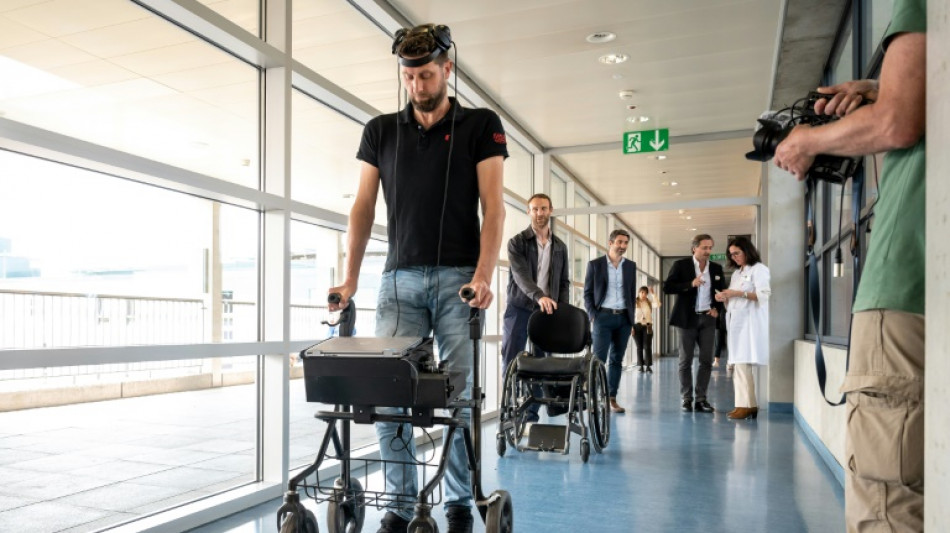
-
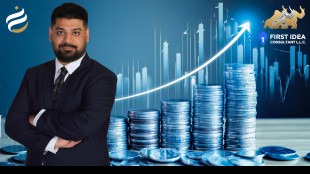 Scandic Trust Group strengthens sales network with First Idea Consultant
Scandic Trust Group strengthens sales network with First Idea Consultant
-
UN warns 'intensified hostilities' ahead in Sudan despite RSF backing truce plan

-
 Seven hospitalized after suspicious package opened at US base
Seven hospitalized after suspicious package opened at US base
-
Guardiola says 'numbers are insane' as he reaches 1,000 games in charge
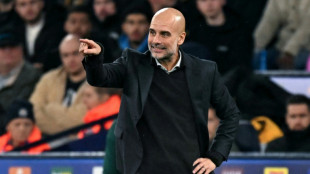
-
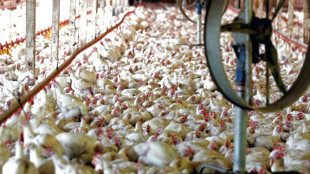 Brazil welcomes China lift of ban on poultry imports
Brazil welcomes China lift of ban on poultry imports
-
Scotland captain Tuipulotu bids for landmark win over All Blacks
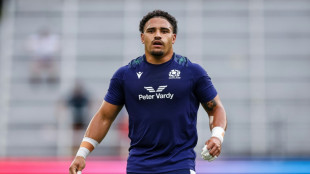
-
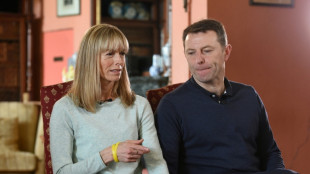 Woman convicted in UK of harassing Maddie McCann's parents
Woman convicted in UK of harassing Maddie McCann's parents
-
Tanzania charges more than 100 with treason over election protests

-
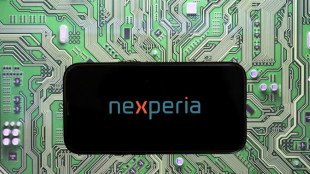 Nexperia chip exports resuming: German auto supplier
Nexperia chip exports resuming: German auto supplier
-
Genge warns England to beware 'nasty' Fiji at Twickenham
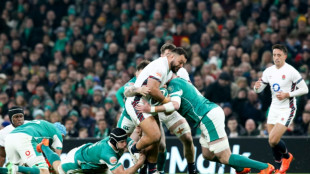
-
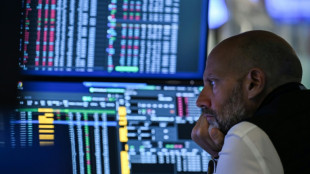 Stocks fall on renewed AI bubble fears
Stocks fall on renewed AI bubble fears
-
UK grandmother on Indonesia death row arrives back in London

-
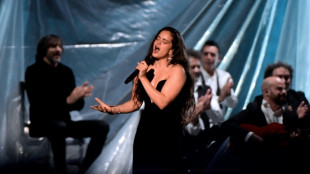 Spanish star Rosalia reaches for divine in new album
Spanish star Rosalia reaches for divine in new album
-
Portugal's Mendes out injured as Neves returns for World Cup qualifiers
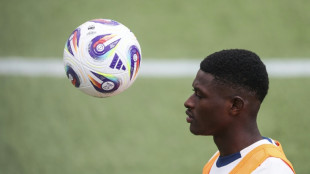
-
 Afghan-Pakistan peace talks push ahead after border clashes
Afghan-Pakistan peace talks push ahead after border clashes
-
Fleetwood in tie for lead at halfway stage in Abu Dhabi
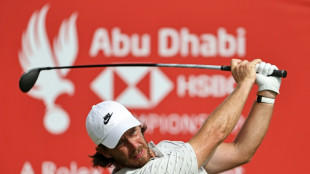
-
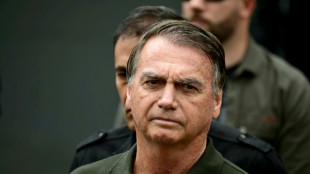 Brazil court starts hearing Bolsonaro appeal
Brazil court starts hearing Bolsonaro appeal
-
Serbia fast-tracks army HQ demolition for Trump family hotel
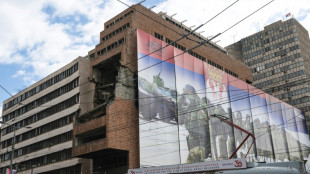
-
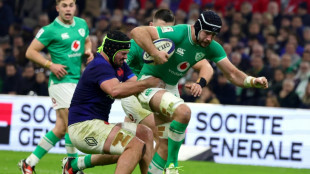 Ireland captain Doris 'mentally stronger' after long break
Ireland captain Doris 'mentally stronger' after long break
-
MSF accuses powerful nations of weakening S.Africa's G20 health text
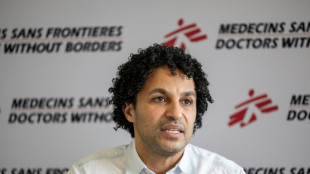
-
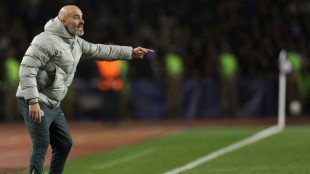 Maresca defends Chelsea rotation policy after Rooney criticism
Maresca defends Chelsea rotation policy after Rooney criticism
-
Hundreds of flights cut across US in government paralysis

-
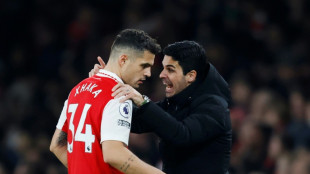 Xhaka 'made me a better coach', says Arsenal boss Arteta
Xhaka 'made me a better coach', says Arsenal boss Arteta
-
Central Nigerian town rebuilds religious trust in shadow of Trump's threat

-
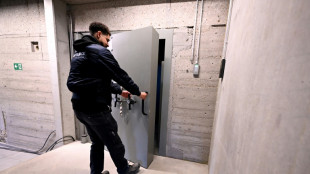 Inside Germany's rare earth treasure chest
Inside Germany's rare earth treasure chest
-
Former jihadist Syrian leader makes unprecedented White House visit
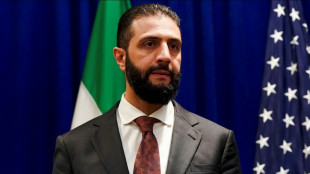
-
 Kagiyama takes NHK lead in Japan to kick-start Olympic season
Kagiyama takes NHK lead in Japan to kick-start Olympic season
-
Ikea profits drop on lower prices, tariff costs
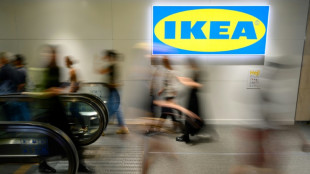
-
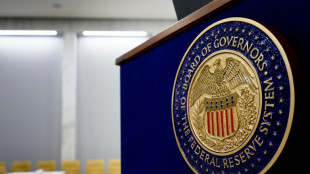 European, Asian stocks decline after Wall Street slide
European, Asian stocks decline after Wall Street slide
-
Tuchel brings 'immense' Bellingham and Foden back into England fold

-
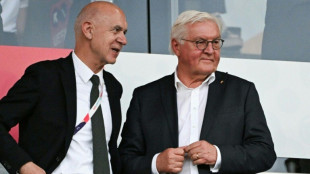 German FA extends with president Neuendorf until 2029
German FA extends with president Neuendorf until 2029
-
No end to Sudan fighting despite RSF paramilitaries backing truce plan

-
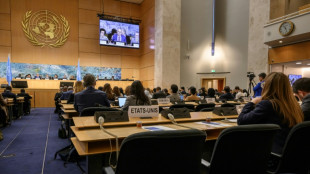 US officials, NGOs cry foul as Washington snubs UN rights review
US officials, NGOs cry foul as Washington snubs UN rights review
-
Injured teen medal hope Tabanelli risks missing home Winter Olympics
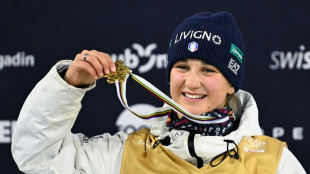
-
 Bellingham, Foden recalled to England squad for World Cup qualifiers
Bellingham, Foden recalled to England squad for World Cup qualifiers
-
Tanzania rights group condemns 'reprisal killings' of civilians

-
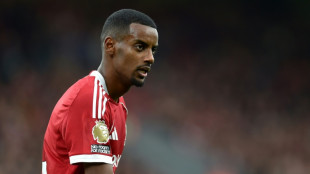 Slot urges patience as Isak returns to training with Liverpool
Slot urges patience as Isak returns to training with Liverpool
-
Rees-Zammit set for Wales return with bench role against Argentina
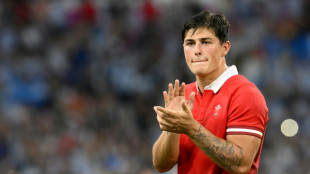
-
 China's new aircraft carrier enters service in key move to modernise fleet
China's new aircraft carrier enters service in key move to modernise fleet
-
Operation Cloudburst: Dutch train for 'water bomb' floods

-
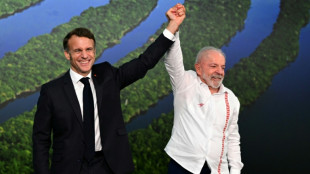 Leaders turn up the heat on fossil fuels at Amazon climate summit
Leaders turn up the heat on fossil fuels at Amazon climate summit
-
US travel woes mount as govt shutdown prompts flight cuts

-
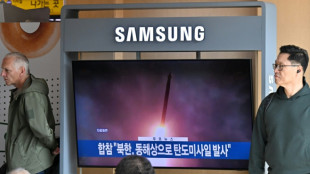 North Korea fires unidentified ballistic missile: Seoul military
North Korea fires unidentified ballistic missile: Seoul military
-
West Bank's ancient olive tree a 'symbol of Palestinian endurance'
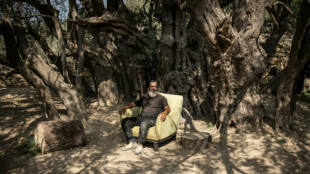
-
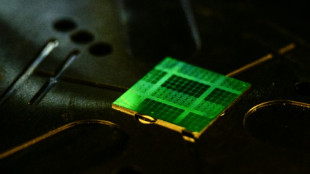 Global tech tensions overshadow Web Summit's AI and robots
Global tech tensions overshadow Web Summit's AI and robots
-
Green shines as Suns thump Clippers 115-102
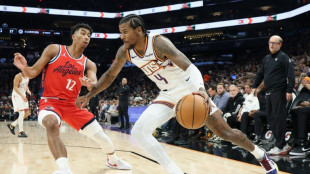
-
 Japan to screen #MeToo film months after Oscar nomination
Japan to screen #MeToo film months after Oscar nomination
-
Erasmus relishing 'brutal' France re-match on Paris return
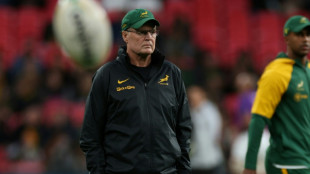
-
 Rejuvenated Vlahovic taking the reins for Juve ahead of Turin derby
Rejuvenated Vlahovic taking the reins for Juve ahead of Turin derby
-
'Well-oiled' Leipzig humming along in Bayern's slipstream
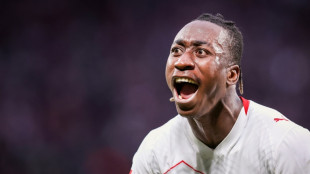

The race to link our brains to computers is hotting up
Brain implants have long been trapped in the realm of science fiction, but a steady trickle of medical trials suggests the tiny devices could play a big part in humanity's future.
Billions of dollars are flowing into a clutch of specialist companies hunting for treatments for some of the most debilitating ailments.
And pioneering studies have already yielded results.
In May, a Dutchman paralysed in a motorcycle accident regained the ability to walk thanks to implants that restored communication between his brain and spinal cord.
That experiment was one of several eye-catching trials that have helped spark a huge buzz around the industry.
In the decade to 2020, investors poured more than $30 billion into neurotechnology more widely, according to UNESCO.
And the money has continued to flood in thanks, in part, to rapid improvements in artificial intelligence (AI), used by researchers to interpret the data from the implants.
Tech titan Elon Musk has refocused some energy on his Neuralink firm after it received permission in May to test its implants on humans, helping it to raise $280 million in funding.
And other firms with less prominent bosses are proliferating, offering hope for sufferers of ailments from rare nerve diseases to severe epilepsy.
- 'Turning point' -
Synchron, a company formed more than a decade ago, raised $75 million this year with backing from the likes of Microsoft co-founder Bill Gates and Amazon's Jeff Bezos.
The firm got permission from the US authorities in 2021 to test its implant, and has since rolled it out to nine people with Amyotrophic Lateral Sclerosis (ALS) -- the motor neurone disease that physicist Stephen Hawking suffered from.
Its implant allows patients to use messaging apps or browse online using only eye movements and thoughts.
One of the big selling points is that, unlike other implants, it does not require invasive surgery.
The first goals of the Synchron test, said Dr David Putrino, who oversaw the medical trial at Mount Sinai Hospital in New York, were to make sure the implant was safe and could monitor the brain over long periods.
On both fronts, he said, the trial had been a success.
Synchron founder Tom Oxley thinks the technology, known as brain-computer interface (BCI), is now at a "turning point".
The industry must aim to make the implants widely accessible, he told AFP.
- Brain attack -
There are still pretty hefty impediments before that can happen, not least that the most powerful results often come from the most invasive implants.
For example, a patient in the US, Ian Burkhart, who was left paralysed from the neck down after a diving accident, told AFP that getting an implant that allowed him to control his arms and hands again was a "magical moment".
But he was only ever able to do that in a lab and the implant, known as a Utah array, was far from comfortable.
"The brain doesn't like having stuff inside it," said Michael Platt, professor of neuroscience at the University of Pennsylvania.
"And so the immune system of the brain will attack these devices," he said of the Utah arrays.
As the implants get covered by cells, they are less able to transmit signals from the brain and they function less well.
Although far less advanced, some researchers are pinning their hopes on techniques that do not involve implants.
In May, scientists at the University of Texas at Austin said they had used brain scans and AI modelling to glean "the gist" of what people were thinking.
The technique relied heavily on the GPT models developed by OpenAI, which are capable of analysing massive chunks of data increasingly quickly.
But such research is at the very earliest stage and involves patients spending as much as 16 hours each time in an MRI scanner.
- Musk's telepathy plan -
While most players in the field are exclusively concerned with medical uses for neurotechnology, Musk is different.
The maverick tycoon is touting the possibility of telepathy, using the technology to store memories or to enable humans to continue their existence without their bodies.
"In the future you will be able to save and replay memories," he told a Neuralink event in 2020.
"You could potentially download them into a new body or into a robot body."
These claims remain far from reality but this has not stopped Musk from going even further.
He sees implants as a way of enhancing humans -- a vital move, he thinks, if our species is to co-exist with superintelligent machines.
"That might be the most important thing that a device like this achieves," he said.
J.AbuShaban--SF-PST



